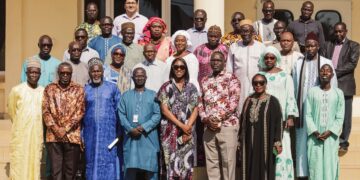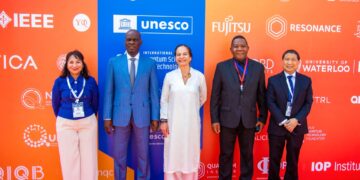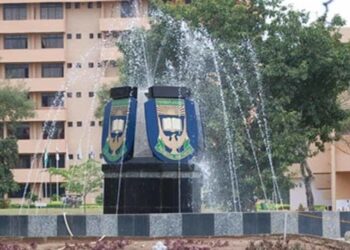Former Managing Director and Editor-in-Chief of The Guardian, Mr. Martins Oloja, has called for a national summit on education to address issues of administration, funding, and quality in Nigeria’s tertiary institutions.
Oloja made the call while delivering the 2025 Registry Annual Lecture and Award Ceremony at Ekiti State University (EKSU), Ado-Ekiti. His lecture, titled “Do We Need More or Better Tertiary Educational Institutions in Nigeria?”, stressed the need for both expansion and improvement in the nation’s higher education system.
Citing data from the World Higher Education Database, Oloja compared Nigeria’s 300 universities with countries such as the United States (over 4,000 universities), India (3,500), China (3,100), and Brazil (1,200), among others. He noted that given Nigeria’s population of over 200 million, the country requires both more universities and better-quality ones to meet the growing demand for higher education.
Oloja, however, lamented the recurring crisis between the Federal Government and the Academic Staff Union of Universities (ASUU), urging President Bola Tinubu to direct the Ministers of Education, Labour, and Budget to urgently resolve the dispute. He described the prolonged crisis as “a symbol of suffering and shame” for successive governments.
Quoting a South African educator, Oloja warned that the easiest way to destroy a nation is to weaken its education system and tolerate examination malpractice. “When the quality of education collapses, doctors, engineers, accountants, judges, and even religious leaders fail in their duties — and the nation itself collapses,” he said.
He further advocated the establishment of specialised universities to meet national development needs, citing the aviation sector as an example. “It is shameful that Nigeria still services aircraft abroad. Why can’t the National Universities Commission (NUC) encourage the creation of specialised universities that can fill such critical gaps?” he asked.
In his remarks, EKSU Vice Chancellor, Prof. Joseph Babalola Ayodele, described the lecture theme as both timely and relevant, noting that it challenges policymakers to balance the demand for access with the need for quality and competitiveness.
Earlier, the university’s Registrar, Mr. Joseph Ife Oluwole, urged participants to continuously improve their professional capabilities and align with global best practices.



















































































 EduTimes Africa, a product of Education Times Africa, is a magazine publication that aims to lend its support to close the yawning gap in Africa's educational development.
EduTimes Africa, a product of Education Times Africa, is a magazine publication that aims to lend its support to close the yawning gap in Africa's educational development.